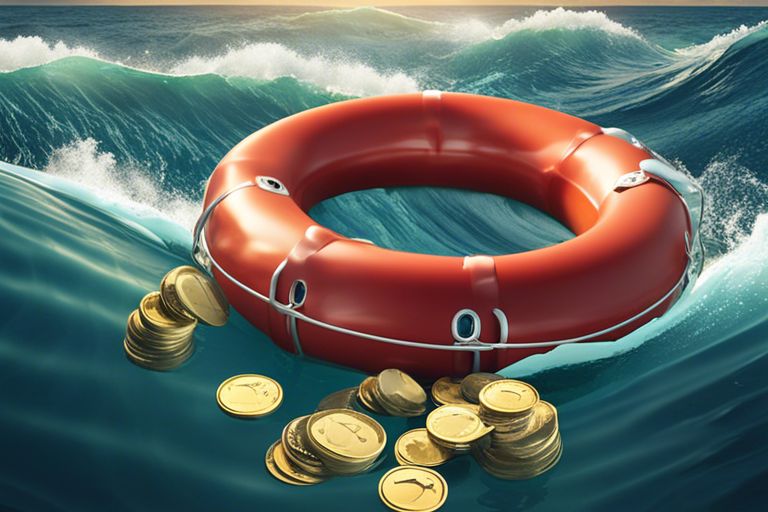
As we look ahead to 2023, one of the biggest economic challenges facing us is inflation. Nobody likes dealing with rising prices, but it’s a fact of life that all of us must learn how to manage and prepare
Inflation, or the rising cost of goods and services over time, has been a recurring issue throughout history. As we look ahead to 2023, Canadians need to be prepared to face the effects of inflation on their finances. To stay ahead of the economic curve, several strategies can help protect individuals and families from falling behind due to rising prices. Here are five proven strategies that can help you fight inflation in 2023:
5 Proven Strategies
1) Monitor your financial situation:
Keeping an eye on your income and expenses is essential for beating inflation. By tracking your money every month, you’ll be able to have a better understanding of how much money you need to save to keep up with higher prices. You’ll also be able to identify areas where your money is going and adjust accordingly if needed.
2) Invest in assets that appreciate:
Investing in assets such as stocks, bonds, and real estate can be a great way of protecting yourself against rising prices. These types of investments tend to increase over time due to inflation as well as other factors like market trends, so they can provide some protection against economic downturns.
3) Utilize tax-advantaged savings accounts:
There are several types of tax-advantaged savings accounts available in Canada such as RRSPs (Registered Retirement Savings Plans), TFSAs (Tax-Free Savings Accounts), RESPs (Registered Education Savings Plans), and LIRAs (Locked In Retirement Accounts). These accounts allow you put away pre-tax dollars which can then grow over time free from taxation until withdrawn at retirement age or for educational purposes. This is an excellent way of saving for the future while getting a break on taxes at the same time!
4) Consider bartering services or goods with others:
Bartering is another great option for those looking for ways to beat inflation without breaking the bank. Trading goods or services with others can allow you get what you need without incurring additional costs, allowing you to save more money while still being able to access desired items or services.
5) Keep an emergency fund:
Having cash reserves on hand is always a good idea when it comes to managing finances but becomes even more important during times of high inflation rates. Setting aside some funds in an easily accessible savings account will ensure that you have money available should any unexpected costs arise due to rising prices or sudden drops in income caused by economic recession periods.
By taking these steps now, Canadians will be better prepared when dealing with inflation in 2023 and beyond – allowing them to protect their finances from becoming overwhelmed by higher prices!
5 ways that inflation will change our habits as consumers in 2023
In 2023, inflation is likely to affect the way Canadians shop and spend their money. As prices continue to rise, consumers will need to adjust their habits to stay ahead of the curve. Here are five ways that inflation will change our habits as consumers in 2023:
5 Proven Habits
1) Being more mindful of expenses:
With dwindling disposable incomes and increasing costs of living, consumers will become more mindful about where they’re spending their money. This could mean carefully researching products before making a purchase or opting for cheaper alternatives when possible. Additionally, more people may consider cutting back on non-essential items such as entertainment or luxury goods to save money.
2) Investing in quality products:
Inflation can also encourage shoppers to choose higher-quality goods over cheaper options. This is because higher-end products tend to retain their value over time better than lower-cost items, meaning that they are less likely to be affected by inflation and can be sold at a later date for a greater return on investment.
3) Taking advantage of discounts and deals:
To maximize savings during difficult economic times, individuals may look for special offers such as discounts and coupons when shopping. This is especially true when it comes to regular purchases such as groceries or household items that must be replenished regularly – these types of items can often be bought at discounted prices if the consumer does enough research beforehand.
4) Reusing and recycling wherever possible:
Consumers may also start looking for ways of reusing and recycling items rather than buying new ones every time something needs replacing or repairing. By extending the life of existing goods through careful maintenance and repair, shoppers can reduce their overall spending while still enjoying the same level of satisfaction from owning new merchandise.
5) Utilizing online marketplace services:
Finally, with internet access becoming increasingly prevalent throughout Canada, more people may turn towards online marketplaces such as eBay or Amazon for bargain deals on everyday items like clothing and electronics. These sites often offer great deals on used goods which can help consumers save money while still getting what they need – providing an excellent alternative to traditional brick-and-mortar shopping.
Overall, inflation has the potential to significantly impact our spending habits in 2023 – but with careful planning and smart decision-making, Canadians can easily adapt without sacrificing too much comfort or convenience!


